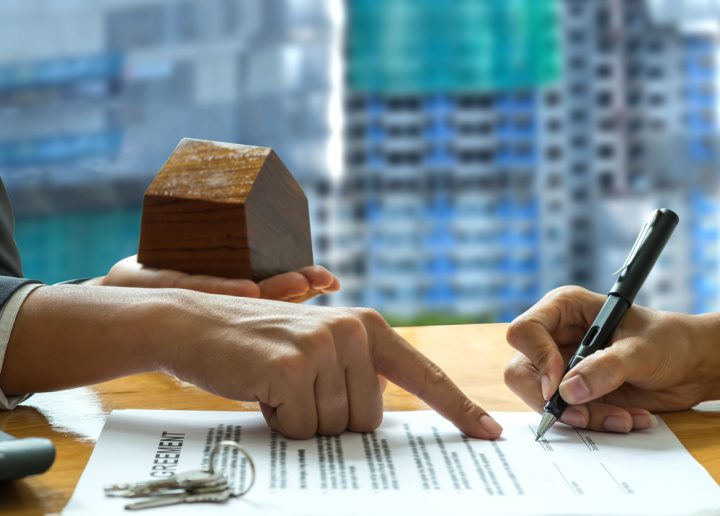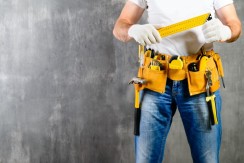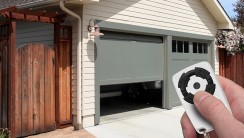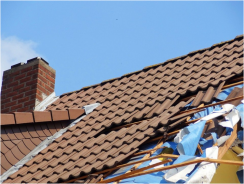
10 Tips for Smart Landlords
Being a landlord is more than just running your own home, there are many other things to consider. Below are 10 tips that will go a long way in helping you become a successful landlord.
1. Getting the right landlord insurance
Once you are done buying a rental property, then the next thing to do is insure it. The regular home insurance policy doesn’t cover rental properties, making it important to invest in research so you can know the insurance requirements of your property. There is no need to regret later when it is too late and you cannot do much about it. If you need it, then compare cheap landlord insurance quotes here
2. Are you going to need a House of Multiple Occupants (HMO) license?
If you are planning on renting out a property that has three or more stories and/or has more than four people from two or more households, then you will need to get the license from the local council.
3. Finalizing your tenancy agreement
Once you have chosen the tenants of your property, make sure there is a tenant agreement in place. The most common agreements are the Assured Short Hold tenancy agreements because they have rules that apply to both the tenant and the owner. The tenant agreement is going to clearly define the responsibilities of each party concisely and transparently.
4. Carrying out ‘right to rent’ checks
When you have the tenancy agreement set up, you will be required to carry out the‘right to rent’ to make sure your tenants are legally allowed to live in the country. This can be done by making copies of their immigration documents or passport. If you hire a letting agent to rent out your property, then they are going to do these checks on your behalf.
5. Protecting the deposits from your tenants
When you have tenants in place, you are going to get rent and deposits. The deposits from the tenants need to be protected in a government-approved deposit scheme. This is also known as the Tenancy Deposit Protection Scheme (TDP). If you don’t do this, you can be forced to pay three times the deposit amount.
They usually either work by paying an insurance premium or holding the deposits of the tenant then offering a dispute resolution service if something was to come up when the tenancy agreement comes to an end.
A tenant needs to know the scheme that has been used by letter, 14 days after they have paid the deposit. TDP scheme has to be used even when the deposit is being paid by somebody else e.g. their parent or the rent deposit scheme.
6. Knowing where you stand with tax
The rent a landlord collects is classed as income, and this means you will need to pay tax, and the amount is going to depend on the profit you have made and other personal circumstances.
The profit from your investment is calculated by adding up the income and deducting expenses and allowances you claim. Some of the things that can be considered expenses and allowances are;
1. Landlord insurance
2. Letting agent fees
3. Mortgage interest
4. Maintenance and repair costs
5. Cost of replacing furnishings
6. Solicitor’s fees
7. Getting the right Energy Performance Certificate
Landlords are required to provide their new tenants with Energy Performance (EPC) except for some circumstances. The types of property that are going to need these certificates include;
Self-contained flats (these are those that are behind its own door and has bathroom/kitchen facilities) – one EPC for each flat.
Individual house (this is a self-contained property that has its bathroom/kitchen facilities)
Rooms that have a shared kitchen, toilet and/or bathroom (this is a property that has a tenancy for each of the rooms) – EPC isn’t required
Shared houses/flats (letting the entire house or flat to young professionals or students and it is on one tenancy agreement) –One EPC will be required for the entire house.
Mixed self-contained and non-self-contained accommodation – one EPC will be required for each flat or unit but no EPC is required for the remaining parts of the property.
A room in a hostel or hall of residence – No EPC needed.
8. Understanding Fire Safety Regulations
You need to make sure that furniture and furnishings have followed the guidelines that were set in the 1988 regulations. These regulations were amended in ’89, ’93, and ’10.
9. Ensuring the property is secure
There are several security measures you can take to enhance the security of the property and your tenants. Some of them include;
● Window locks
● CCTV
● Door chains
● Five lever mortice lock or any other type of secured door lock
● Defender alarms, burglar alarms, spy-holes, and night lights
10. Maintaining the property
One thing you have to accept as a landlord is the fact that the property is going to wear and tear, walls in need of painting and warn carpets. The landlord must make sure the standard of the property is maintained because this ensures you keep on top of the smaller problems, which can end up saving you a lot of money in the long term.











Author
Homesgofast com
Homesgofast.com is an international real estate portal and news source for Google news. Publishing international real estate, finance, homes and travel-related news and blogs for a targeted audience since 2002. Each news item is circulated to thousands of potential readers each day and is also available to the millions of people who sign up for Google news alerts. Find homes offered for sale and to rent direct from owners and some of the best real estate agents from over 35 countries